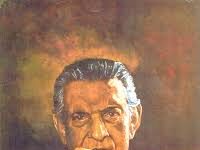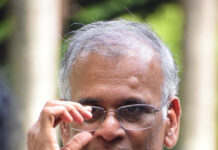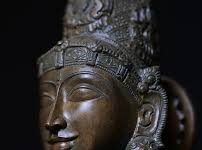
Dear Je,
I hope you are fine.
I am a computer engineer. I am interested in literature, politics, and cricket. I came to your website via some political discourse, but I have stuck around due to the interest I have developed in literature. I have a question for you. You are conducting classes connected with several religious teachings, such as Saivite philosophy, Vaishnavism and so on. Are these classes really necessary for a modern young man like me? Why should I take any interest in these?
Krishnamurthy Narayanan
Dear Krishnamurthy,
Of course, not all young people need these classes. Anyone whose life is content with a regular tech-based job and a few simple amusements need not trouble themselves with these. (Even then, they may want to join the Yoga/Meditation classes we conduct; those classes would be beneficial in their everyday life.)
However, anyone with even a modicum of taste and a passing interest in intellectual pursuits will find these training sessions essential for three reasons:
- Literature, philosophy, art are not only the products of the present; they are part of a long unbroken chain that extends from antiquity until this day. They can be learnt only as part of a whole tradition. Literature, philosophy, and art of the past are all deeply embedded in religion. It is impossible to learn them unless one understands religion. Without studying religion, one’s introduction to literature, philosophy, and art will certainly be incomplete.
- As much as we acquire education through our intellect and reason, our subconscious would have been developing all along unbeknownst to us. This subconscious is inherited by us from our traditions and is the origin of our thoughts and our imagination. To understand our own subconscious, we must learn about our traditions. This tradition, in our case, has only been preserved in the form of religions.
- Religions and cultural traditions are exploited by politicians to amass power. In order to mobilise support for themselves, they turn religion into a mass of simplistic in-group affiliations, a subject of heightened passion, and a handful of monolithic beliefs. Therefore, religions are made available to us only with the baggage of deliberate distortions and hate-fuelled bigotry introduced by politicians. Practically all the ideas we associate with religion are invariably erroneous opinions and propaganda engineered by political interests. Any individual of taste and intelligence must therefore learn the true ideas contained in these religions and understand their foundational myths and archetypal images.
There are, of course, many obstacles in the course of anyone interested in learning about religions in a systematic way. One needs to overcome all these obstacles in order to learn:
- Religion is taught here only as a matter of faith. In studying religions, one seldom learns their history, culture, art, literature and philosophical principles. The classes we conduct here aim to introduce these aspects of history, culture, art, literature and philosophical systems associated with religions while making no demands on anyone to believe in any religion.
- Religions are also inextricably tied to beliefs, customs, and rituals; they are divided into castes and narrow sects. One cannot learn religion without also accepting all these practices attached to the religions. For instance, many religious institutions insist that in order to learn Saiva Siddhanta, one has to belong to one of the upper castes within the Saiva tradition and must wear vibhuti and observe the tenets of Saivism. In such situations, a member of another religion simply cannot learn it; caste-based humiliation might also occur. To avoid these, we conduct classes with no religious rituals or caste norms, and we keep our learning open to all. No worship is mandated. These classes are conducted purely as an intellectual exercise.
- In India, it is relatively easy to acquire a religious education tied to one’s own tradition. However, one is likely to be denied an opportunity to learn about a different religion. Anyone with a quest for knowledge, however, must know the basics of every religion. It is comprehensive knowledge that will help one clarify one’s own understanding of each religion. What we are attempting here is to teach everyone about all religions as an intellectual exercise.
At our classes, expert teachers introduce the literature and philosophy of various religious traditions. Training sessions on Saiva Literature (Marabin Mainthan Muthaiah), Saiva Philosophy (A. V. Santikumara Swamigal), Vaishnava Literature (J. Rajagopalan), Christian Philosophy (Cyril Alex), Islamic Philosophy (Nisha Mansoor) are being conducted.
Jeyamohan
Translated by Iswarya
Related Articles












